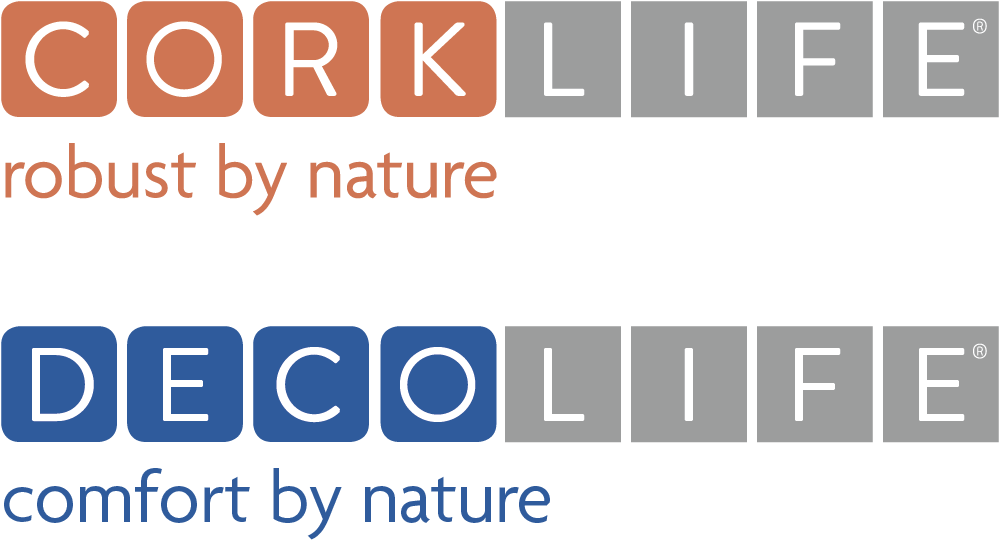SUSTAINABLE BY HEART
FLOORINGS THAT COMBINE DESIGN, PERFORMANCE AND CLIMATE PROTECTION

ENVIRONMENT
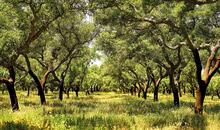
- regrowing raw material after each harvest
- absorbs 5 x more CO2 from the atmosphere
- helps reduce global warming
- 4x less CO2 emissions compared to standard wood floor production
The sustainability begins in the cork oak forests in the Mediterranean regions, which are more than just a supplier of the renewable raw material cork. Carefully cultivated, these forests are a highly effective CO2 storage with a positive climate balance and thereby contribute to reduce global warming. They protect the soil from desertification, regulate the water balance and are habitats for numerous animal and plant species.

ECONOMY
- Economic engine for rural regions
- One of the highest paid work in agriculture worldwide
- Manual Harvesting
The cork oak forest is essential for the development of rural areas in the Mediterranean region.
Cork harvesting is an activity that requires experience and high skills. During the harvesting process no trees are damaged or cut down.
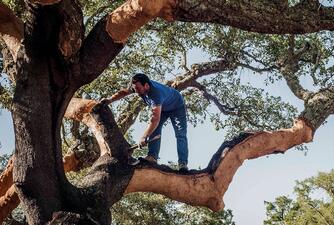

SOZIALE BEDEUTUNG
- Prevents rural Desertificiation
The cork harvest is a regular cyclical process that contributes to settle people in regions at risk of desertification.
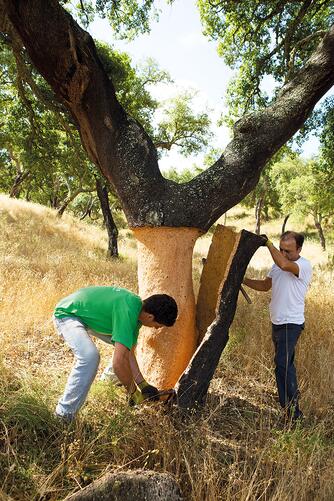
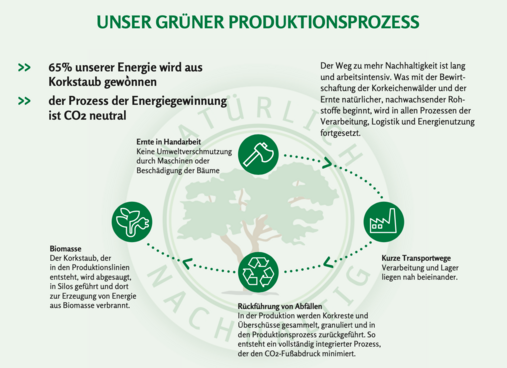
Certifications
CORKLIFE products represent a unique balance between added value and environmental protection. We are fully engaged in the environment and sustainability, which are two of our most important values.
On the other hand, quality is already part of the corporate philosophy of modern and competitive companies and is increasingly becoming the decisive criterion for access to the most demanding markets.
Below you will find our certificates:
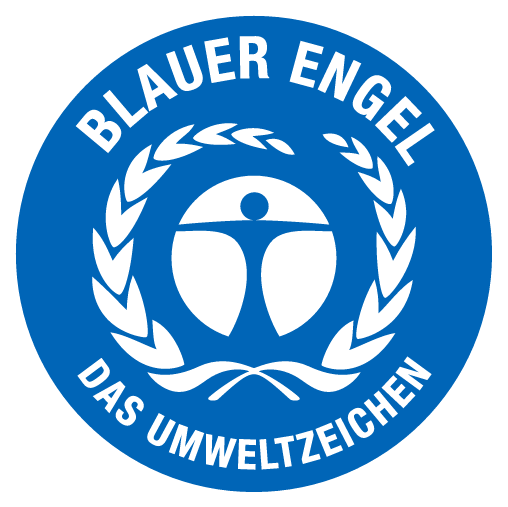
The "BLAUE ENGEL" is a voluntary certification, that follows rigorous environmental standards and is renown as a reference guide for a more sustainable way of living. Blue angel is a synonym of a product (or service) that meets rigorous criteria of environmental performance such as being PVC free.
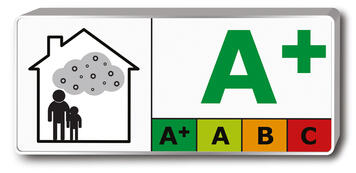
VOC
In January 2012, guidelines were established in France that limit VOC (Volatile Organic Compounds) emissions from construction products. Manufacturers who sell their products in France must have a classification ranging from A+ (very low emissions) to C (high emissions). It is the declared aim to improve the air quality in both private and business premises. (with the exception of firmly bonded, sanded floorings, which achieve an A rating)

The aim of the German Cork Association is to ensure the quality of cork products, to optimise manufacturing processes and to support research projects.
Cork is sustainable
For a better future
The eco-efficiency of cork floorings
An eco-efficiency analysis determines how environmentally friendly a product or process is in relation to comparable products or processes. Part of the analysis is also the economic efficiency for the consumer. Other relevant facts include the consumption of resources, such as energy or the emission of greenhouse gases during production, the use phase and the disposal.
In 2007, an eco-efficiency analysis was carried out to compare different floorings, including CORKLIFE floorings.
The superior properties of cork floorings:
- Comparatively low consumption of resources (energy and raw materials)
- Significantly low contribution to global warming due to low CO2 emissions
- The excellent insulating properties and surface characteristics of cork enable significant savings in heating energy.
Measured against the current parameters, the cork industry works in a remarkably sustainable way: it harvests a regrowing raw material from trees according to clearly defined principles, without damaging them, and uses it to manufacture products that offer high added value. In this way the cork industry contributes to economic and social stability in rural, often economically weaker regions. CORKLIFE's products also help to maintain the balance between added value and environmental protection.
The cork oak forests used for CORKLIFE products were sustainably cultivated. However, the role of these trees in the economic and ecological system "Mediterranean area" goes far beyond of pure raw material supplier - they are an important economic factor in the countries around the Mediterranean Sea. But not only the preservation and expansion of the cork oak trees ensure the life of many cork farmers. Rather, the perspective of cork farmers is dependent on the development of new cork products. If new products have a recognizable added value for the end customer and therefore good sales forecasts, the future of the forest owners is also ensured.
The cork industry is remarkably sustainable: the cork is regularly harvested from the trees without damaging the tree and transformed into high quality products. At the same time, the environment is protected and social sustainability in an area threatened by desertification is supported.
CORKLIFE products help to reduce global warming - not only through low emissions, but also through the natural ability of cork to retain CO2.
